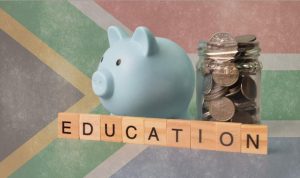The impacts of inflation on personal finances in South Africa are increasingly evident, affecting households in various ways. As the cost of living rises, it becomes crucial to understand the consequences and seek strategies to offset these challenges. In this blog post, we will delve into the repercussions of inflation on personal finances and explore practical steps to mitigate them.
Effects of rising prices on household budgets

Inflation significantly affects household budgets, putting a strain on families to balance their expenditures. As the general price level of goods and services increases, household incomes struggle to keep pace, leading to reduced purchasing power.
This situation forces consumers to prioritize essential items and seek cost-saving measures. Consequently, discretionary spending on leisure, entertainment, and luxury items becomes limited, leading to changes in lifestyle and financial habits.
For South Africans, dealing with these financial shifts requires a strategic approach. Families might need to rethink their budgetary allocations and seek ways to reduce non-essential expenses. By doing so, they can navigate the economic landscape more effectively and cushion the blow of rising prices.
Employing money management tactics, such as creating detailed budgets and tracking spending, can help households better align their finances with their income, ensuring they can meet their needs without falling into debt.
Understanding the consequences of Inflation
Understanding the consequences of inflation is vital to devising a financial strategy that mitigates its effects. One of the primary repercussions is the erosion of savings. As inflation rates climb, the value of saved money diminishes, reducing the purchasing power of individuals’ savings over time.
This reality emphasizes the importance of investing in assets that can outpace inflation. Equities, real estate, and inflation-protected securities are potential options that can offer returns above the inflation rate, safeguarding the value of investment portfolios.
Additionally, inflation can affect debt management. Fixed-rate loans become more attractive as their real cost decreases with rising prices, while variable-rate loans may become more burdensome due to higher interest rates.
Impact on employment and income
Inflation also impacts employment and income, influencing job markets and wage growth. In periods of high inflation, employers might struggle to raise wages in line with the cost of living, resulting in a decline in real income for employees.
This scenario makes it essential for workers to advance their skills and knowledge, increasing their competitiveness in the job market. Upskilling can lead to better job opportunities and higher wages, countering the erosive effect of inflation on earnings.
Moreover, individuals may need to explore alternative income streams, such as freelance work, part-time jobs, or entrepreneurial ventures, to supplement their primary income and maintain financial stability amidst rising costs.
Mitigating the effects on personal finances
Mitigating the effects of inflation on personal finances involves adopting proactive measures. One crucial step is to establish a diversified investment portfolio, reducing dependence on any single asset class and spreading risk across multiple investments.
This approach not only protects against inflation but also leverages growth opportunities in different sectors. Additionally, maintaining a healthy savings rate helps create a buffer against unforeseen expenses and economic uncertainties.
Individuals should also focus on debt management strategies to minimize the impact of rising interest rates. Paying down high-interest debt and refinancing loans at lower rates can provide significant financial relief.
Budget adjustments and cost-cutting measures
Adjusting budgets and cutting costs are essential steps in coping with inflation. Assessing and reassessing monthly expenses to identify areas where savings can be made is crucial. For example, optimizing utility usage, reducing dining out, and seeking discounts can collectively enhance financial resilience.
Switching to cost-effective alternatives for everyday needs can also significantly reduce expenditure. Furthermore, adopting a minimalist lifestyle can help prioritize long-term financial health over short-term gratification, fostering sustainable spending habits that withstand economic fluctuations.
Seeking financial advice
Seeking financial advice is another effective way to mitigate the effects of inflation. Financial advisors can provide tailored strategies based on individual circumstances, helping to navigate complex economic conditions.
These experts can offer insights into investment options, retirement planning, and tax-efficient strategies, ensuring that personal finances remain robust despite inflationary pressures. Regular consultations with a financial advisor can also keep individuals informed about market trends and changes, enabling them to make informed decisions that safeguard their financial futures.



